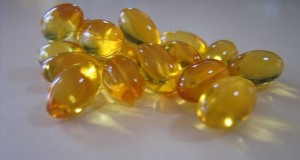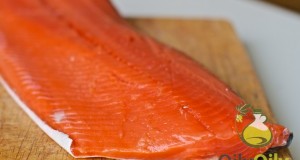Contents
What does extra-virgin coconut oil mean?
Coconut oil can be refined or unrefined. Unrefined coconut oil is also called virgin or extra-virgin coconut oil. The term “extra-virgin” is misleading and doesn’t exist when it is applied with coconut oil. “Extra-virgin” has the meaning in connection with olive oil (read more about olive oil types). Coconut oil is either pure, untouched, virgin or it’s processed. Virgin coconut oil is made from the first mechanical pressing of fresh coconuts. This oil is considered the best coconut oil for our health.
Virgin coconut oil vs. refined one
Refined coconut oil in comparison with virgin one has been bleached and deodorized. During the process of bleaching it has lost polyphenols, which show an antioxidant effect on the body. They inhibit cholesterol oxidation. As a result, virgin coconut oil can lower the development of atherosclerosis and the heart disease risk, according to CoconutOilfacts. You can’t expect such an antioxidant effect from refined oil.
SEE ALSO: What is Grapeseed Oil?
Beneficial features
Coconut oil contains saturated fats called medium-chain fatty acids. The most beneficial among them are lauric, caprylic and capric acid. It is rich in triglycerides, antioxidants, proteins and vitamin E. Virgin coconut oil benefits are caused by its antibacterial, antifungal and antimicrobial properties of the above-mentioned acids as well as by antioxidants that help prevent the signs of aging. According to the Department of Food Technology, Universiti Putra Malaysi, antioxidants of coconut oil fight with the aging processes destroying free radicals that induce hardening of the connective tissues in the skin. The oil has a relatively small molecular structure, thus it is well-absorbed into the tissues of the skin. This structure of coconut oil allows it to penetrate deeper and to bring the vitamin E and protein to the inner layers of the skin tissues. Extra virgin coconut oil, in particular, is smooth and silky in texture and possesses rich tropical odor. It is moisturizing, healing and nourishing for the face and body. It effectively soothes and rejuvenates the skin. Virgin coconut oil is applied to skin and protect the skin from the inside.
RELATED: How to Make a Coconut Oil Soap
Infections and acne treatment
One of the virgin coconut oil benefits is its ability to heal infections and acne (read more about coconut oil and acne). As Gnet.Org states, the antibacterial properties of coconut oil achieved, particularly, from the capric and lauric acids can help combat bacterial and microbial infections as well as put a stop to acne. It is known that coconut oil can effectively combat ringworm and athlete’s foot especially if it is combined with tea tree oil beneficial for ringworm. It kills bacteria and helps avoid outbreaks of acne.
Aging
The connective tissues of the skin are harmed by the activity of free radicals. The skin loses elasticity and shows the aging signs. Virgin coconut oil penetrates the skin with the antioxidants. They fight with free radicals and strengthen the connective tissues. Coconut oil’s antioxidants also hinder oxidation and slow the appearance of brown liver spots on the skin emerged as a result of proteins oxidation when you get older.
You see that extra-virgin, or virgin, coconut oil has more benefits if compared with refined one. Though it is a bit more expensive, it will help you much more. If you want to achieve the largest amount of virgin coconut oil benefits, look for pure organic coconut oil, which has no herbal extracts, chemical additives, flavors or artificial colorings.
 Oilypedia.com – Benefits And Uses Of Supplemental and Essential Oils
Oilypedia.com – Benefits And Uses Of Supplemental and Essential Oils 


